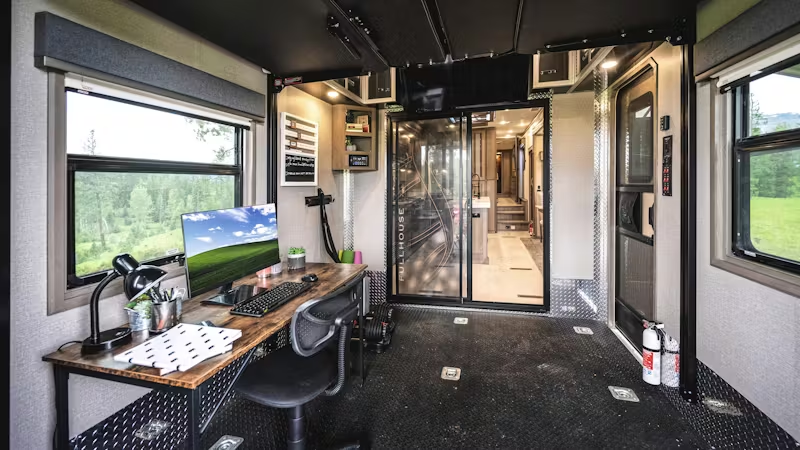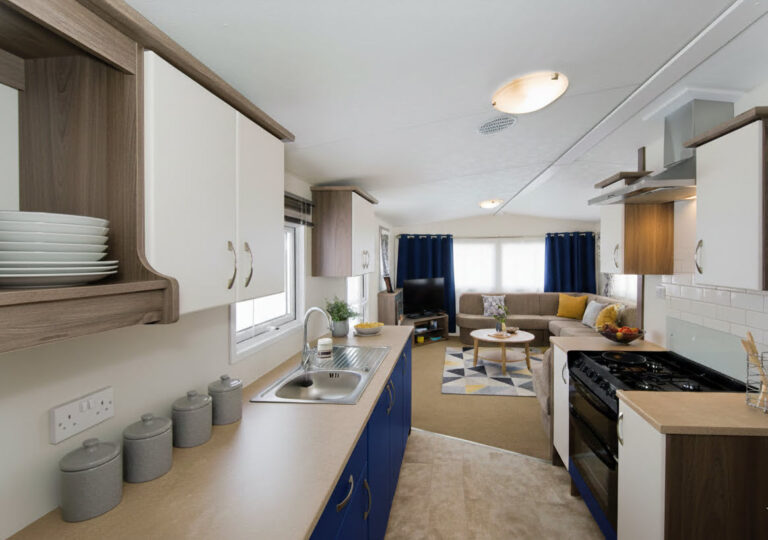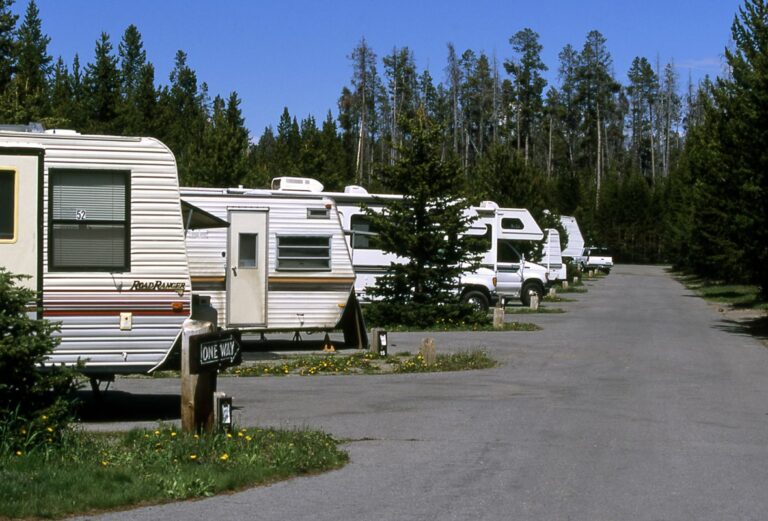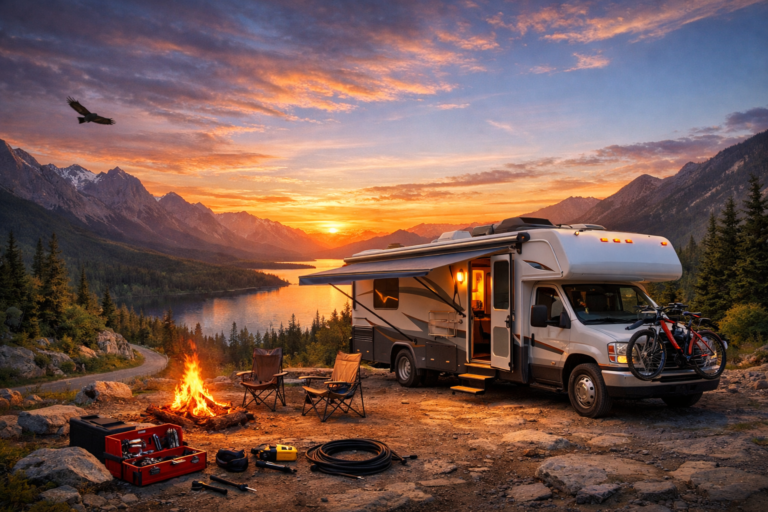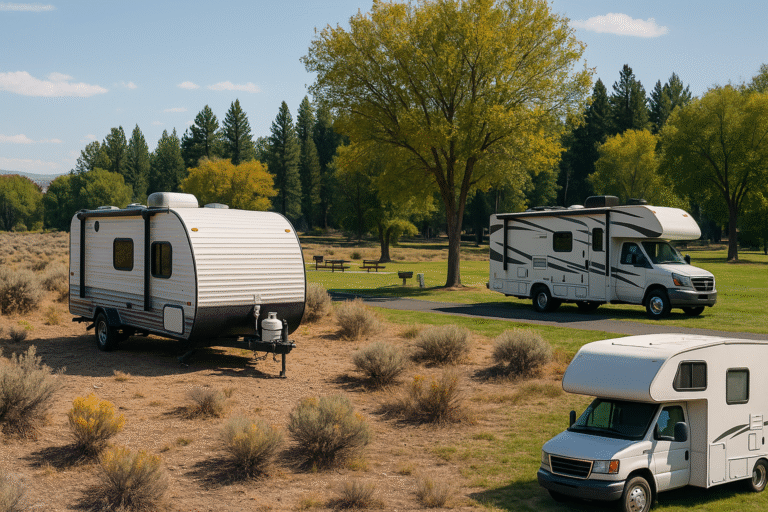How to Work Remotely While Embracing the RV Lifestyle
In recent years, the allure of combining work with travel has captivated many professionals across North America. The RV lifestyle offers a unique blend of adventure and productivity, allowing individuals to explore diverse landscapes while maintaining their careers. This article delves into the practicalities of working remotely from an RV, focusing on the United States and Canada, and provides insights into making this lifestyle both feasible and enjoyable.
Understanding the RV Lifestyle and Remote Work
The RV lifestyle is characterized by mobility, flexibility, and a deep connection with nature. For remote workers, it presents an opportunity to break free from traditional office settings and experience life on the road. According to a survey by the RV Industry Association, 22% of RVers have indicated that someone in their home currently works remotely, and among those working remotely, 54% indicate that work has been done from an RV.
This trend is particularly pronounced among younger demographics. A study by Progressive Insurance found that 70% of RVers aged 25–34 are active remote workers, highlighting a shift towards a more mobile and flexible work culture.
Why Work Remotely From an RV? The RV Lifestyle and Remote Work Boom
The rapid rise of remote work has fueled a surge in RV ownership and full-time living on the road, particularly in North America.
- The RV industry’s economic impact in the U.S. reached an impressive $140 billion, while Canada’s industry contributes nearly $4.8 billion.
- Millennials are the fastest-growing demographic of RV users, making up 56% of first-time RV buyers, many motivated by the ability to work remotely while traveling.
- Searches for “remote jobs” increased by 397% between 2019 and 2022, reflecting the growing desire for work flexibility.
Working remotely from your RV allows you to combine your career with the freedom to explore nature, social communities, and diverse urban and rural environments across the continent.
Choosing the Right RV for Remote Work
Selecting an RV that accommodates a remote work setup is crucial. Factors to consider include:
- Space and Layout: Opt for models with dedicated workspaces or areas that can be converted into offices.
- Connectivity: Ensure the RV has provisions for internet access, such as Wi-Fi boosters or satellite dishes.
- Power Supply: Consider RVs equipped with solar panels or generators to support electronic devices.
Popular RV models among remote workers include Class B vans for their compactness and mobility, and Class A motorhomes for their spacious interiors and amenities.
Establishing a Productive Workspace on the Road
Creating an efficient workspace within the confines of an RV requires thoughtful planning:
- Furniture: Invest in ergonomic chairs and adjustable desks to promote comfort during long working hours.
- Organization: Utilize storage solutions to keep the workspace clutter-free and organized.
- Lighting: Ensure adequate lighting to reduce eye strain and enhance productivity.
Many RVers have shared their experiences and setups online, offering inspiration and practical advice for setting up a mobile office.
Ensuring Reliable Internet Connectivity
Reliable internet access is the backbone of remote work. Strategies to maintain connectivity include:
- Mobile Hotspots: Use devices from providers like Verizon or AT&T to access the internet via cellular networks.
- Satellite Internet: Services like Starlink offer satellite-based internet, ideal for remote areas with limited cellular coverage.
- Wi-Fi Boosters: Devices that amplify existing Wi-Fi signals can be beneficial when staying in campgrounds or RV parks.
It’s advisable to have multiple internet options to ensure connectivity in various locations.
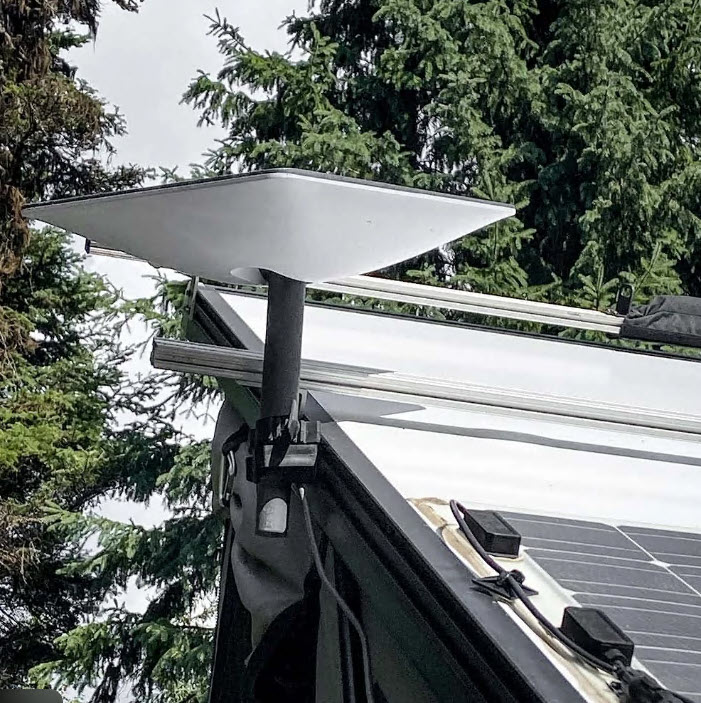
Managing Power Needs
Powering devices such as laptops, phones, and other electronics is essential:
- Solar Panels: Installing solar panels can provide a sustainable and off-grid power source.
- Generators: Portable generators offer flexibility but can be noisy and require fuel.
- Battery Banks: High-capacity battery banks can store energy for use during non-sunny periods.
A combination of these power sources often works best, depending on the RV’s energy requirements and the traveler’s lifestyle.
Balancing Work and Leisure
One of the main advantages of the RV lifestyle is the ability to explore new places during downtime:
- Planning: Schedule work around travel plans to maximize leisure time.
- Boundaries: Set clear work hours to prevent burnout and ensure personal time.
- Community: Engage with fellow RVers to share experiences and recommendations.
Many remote workers find that the RV lifestyle enhances their overall well-being by providing a balance between work and exploration.
Staying Productive on the Road: Tips for Remote Work Success
Remote work from your RV requires discipline and structure to balance work and travel.
- Establish a Routine: Set regular working hours, use to-do lists or planners, and define your workspace to create clear boundaries between work and leisure.
- Plan Travel Around Work: Limit RV moves to once a week or less to avoid travel day stress and stay focused on tasks.
- Leverage Down Time: Use travel or passenger time for lighter tasks like emails or social media engagements.
- Flexible Work Hours: Identify your most productive times of day, working around natural rhythms and outdoor activities.
Legal and Logistical Considerations
Working remotely from an RV involves navigating various legal and logistical aspects:
- Tax Implications: Understand the tax laws in different states or provinces, as they can affect income taxation.
- Insurance: Ensure the RV and its contents are adequately insured.
- Residency: Be aware of residency requirements for healthcare and other services.
Consulting with professionals in these areas can help avoid potential issues.
Popular Remote Jobs for RVers in the U.S. and Canada
Many remote jobs align well with the RV lifestyle due to their reliance on digital tools and flexible hours, such as:
| Job Title | Description | Essential Tools |
|---|---|---|
| Graphic Designer | Creating marketing and web graphics | Laptop, design software, Wi-Fi |
| Virtual Assistant | Managing administrative tasks remotely | Laptop, CRM software, phone |
| Blog Writer | Writing content for blogs or websites | Laptop, research tools |
| Social Media Manager | Handling social media accounts | Laptop, social media platforms |
| Web Designer | Developing websites using programming or platforms | Laptop, coding tools |
| Transcriber | Converting audio/video content into text | Laptop, headphones |
| Brand Specialist | Creating and managing brand images and campaigns | Laptop, design tools |
Managing Costs and Budgeting for Full-Time RV Remote Work
While RV living can be cheaper than traditional living by saving on rent or mortgage, there are hidden costs that remote workers should plan for:
- Fuel and maintenance for your vehicle.
- Campsite fees, which vary across regions.
- Internet connectivity expenses, including hotspots or satellite subscriptions.
- Equipment upgrades for better power and office setups.
Planning and budgeting ahead, and taking advantage of seasonal discounts (October and January tend to have better RV purchase deals), help manage these expenses effectively.
Embracing the RV Lifestyle: Community and Adventure
Working remotely from your RV lets you explore iconic U.S. and Canadian destinations, from national parks to small towns, all while building meaningful connections:
- Engage with fellow RVers and remote workers through online communities and social media.
- Discover hidden gems and outdoor activities like hiking, fishing, and sightseeing, which 90% of Canadian campers enjoy outside their campsites.
- Enjoy the freedom to chase the best views while conferring with clients or colleagues.
Conclusion
Embracing the RV lifestyle while working remotely offers a unique blend of adventure and productivity. By selecting the right RV, establishing a functional workspace, ensuring reliable connectivity and power, and balancing work with leisure, individuals can enjoy a fulfilling and dynamic lifestyle on the road. As the trend continues to grow, more resources and communities are emerging to support remote workers in their RV journeys, making this lifestyle increasingly accessible and enjoyable.

